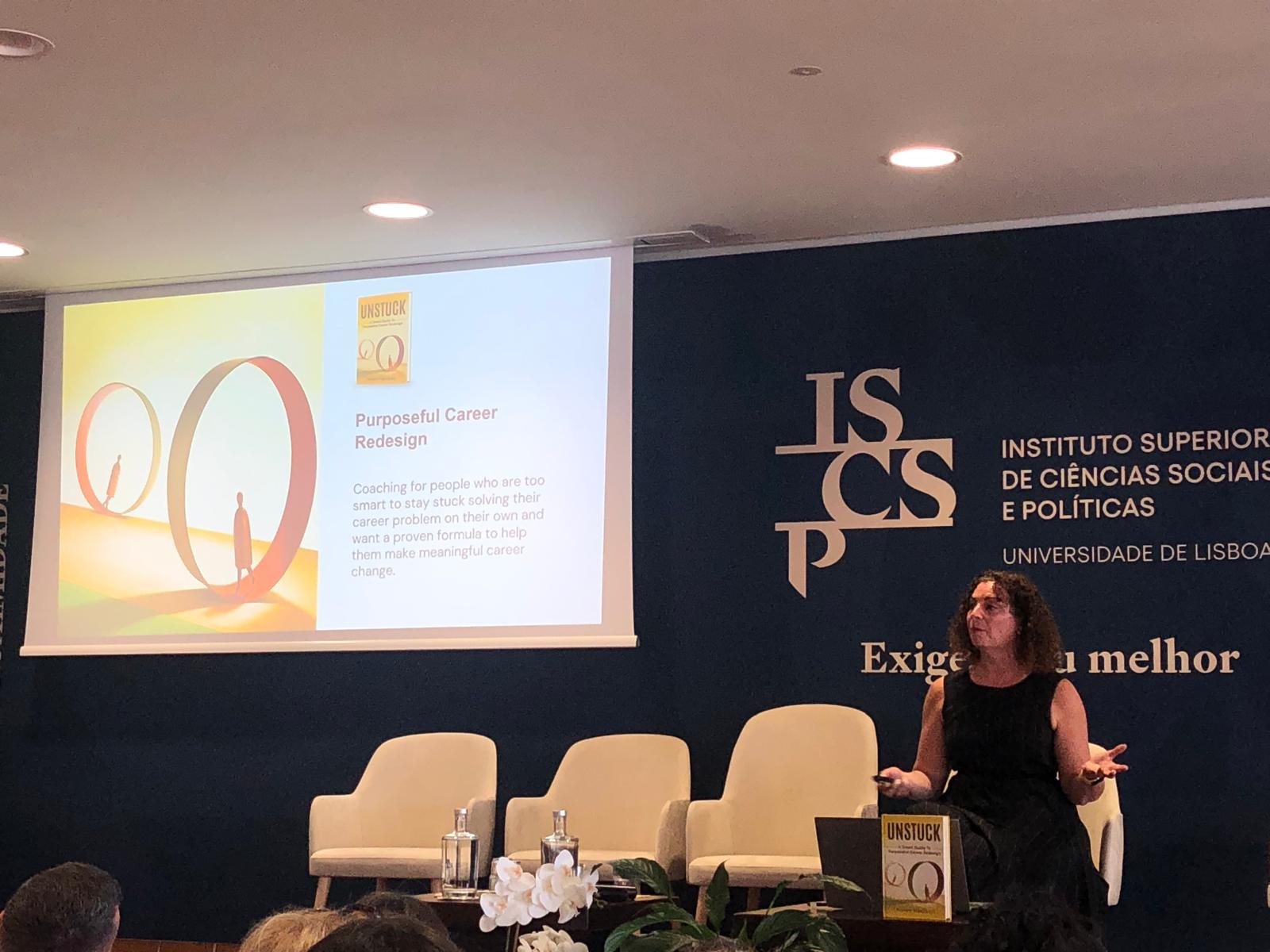I used to think of new year’s resolutions as if they were life-targets. Then run them like the appraisal system that went with my career-targets.
It felt productive and smart. But that was when I ran a division of a global company. Where the weeks ran at 100 mph and the deadline-driven demands were disproportionate to the scope of work.
Oh, and utterly disconnected from the real me. I wasn’t saving lives – this was public relations! Which I loved. Until I realized I was wrong about that too.
When asked recently which aspects of self-regulation felt most important, nearly 40% of my career redesign community asked to know why we don’t want what we think we want. Or feel happy when we get it.
5 Fast Thoughts
I hope these 5 thought-starters offer answers that will resonate. And help in setting better career redesign goals. Because the fact is, some goals are just better than others.
1. Is fine as is
We choose goals in a bunch of different ways.
- To fit with our sense of self. For instance, extraverted people are more likely to set financial goals while quieter personalities will often set social goals.
- Check in with yourself: are you running true to type and if so, will those goals get you closer to what matters most? If not, change them. They’re not destiny, just habits.
2. What’s Your ‘Regulatory’ Style?
Out of these two options, are you more worried about missing out on a career or business opportunity? Or avoiding a fail and minimizing losses? Setting the right-fit goals for your ‘regulatory style’, is really important. If you’re not sure, draw a ‘goal tree’ and place each goal on one of two branches:
- ‘approach’ : hanging on to what you’ve got, or
- ‘avoidance’ : gaining as much ground as you can and never missing out?
3. Doing vs. Being
Ideally, we create a hierarchy of concrete ‘doing’ goals to support our less tangible ‘being’ goals. Often we say ‘being happy’ is the big goal. Then pursue smaller goals taking us in precisely the opposite direction because we’re wrong about what we think we want. Which explains why it doesn’t make us happy even if we achieve it.
4. Money vs. Happiness
For instance, research reveals that more importance is given to being very well-off financially year on year. Despite financial success being an increasingly reliable predictor of unhappiness. Actually research shows that beyond quite a conservative level of income, increased spending power doesn’t correlate with matching levels of happiness.
If you are among the 75% of people setting goals around money, do the maths. How much do you need to be comfortable? After that, question your thinking. If your goals are about attracting more money, why? What is it you want? Is there something that matters more? Things give us less pleasure than time spent with close others and helping others.
5. What kind of motivated are you?
It will help you to know there are 2 types of motivation for pursuing goals:
- intrinsic (something you want to do for your own reasons, e.g. passion, purpose, self-worth).
- extrinsic (Something you strive for because of the reward it brings, e.g. approval, money).
The One True Target
As a leadership coach it feels important to say, if you take just one thing away today, it’s that we should keep this one true target in sight.
We enjoy, but also achieve better, at intrinsic goals.
Because we’re truly motivated to persist when we’re doing things for our own reasons. This is where we find happiness. Or better put, purpose.
But that’s something different for us all. What to do then: which way to go? I have an idea to help you set the right-fit goals.
Now, I hope you value me saying this: I have a slight allergic reaction when I see someone say, ‘find your passion’.
I think acknowledging you don’t have passion for what you spend your days doing is a big deal. And it’s hard when you don’t know what that is.
Often, if someone has hit a time where their career feels bankrupt of meaning, they cannot simply find purpose because they try to. It’s more like we need to remove our whole self, and anchor somewhere different. It’s about making an identity-shift, so that what we do can realign with our sense of self.
I passionately believe we cultivate these drivers: passion and purpose. Not find them. They are the key ingredients to our intrinsic motivation. Because what we’re really driven to do will have genuine synergy with what matters to us most.
It’s hard because our value set operates way under the conscious. It’s why we don’t feel certain of a new direction at first. Just increasingly dissatisfied with the current one. We tune into a distant whisper. Slowly. But listen hard. What you really, really want is there.
The Value of Values
The most powerful way I have found figure this hard stuff out with my clients, is values work. Co-active coaching conversations chip away at the inevitable surface layers of life – all the expectations, pressures and obligations, until we have curated just 2 values that everything important sits under.
These top 2 values become the filter through which difficult choices are made and exciting plans are shaped.
Because unless we employ them in our everyday, they’re just words that fell from a rich session, but live on a piece of paper.
Which to be clear, is no more a route to happiness than financial success!






